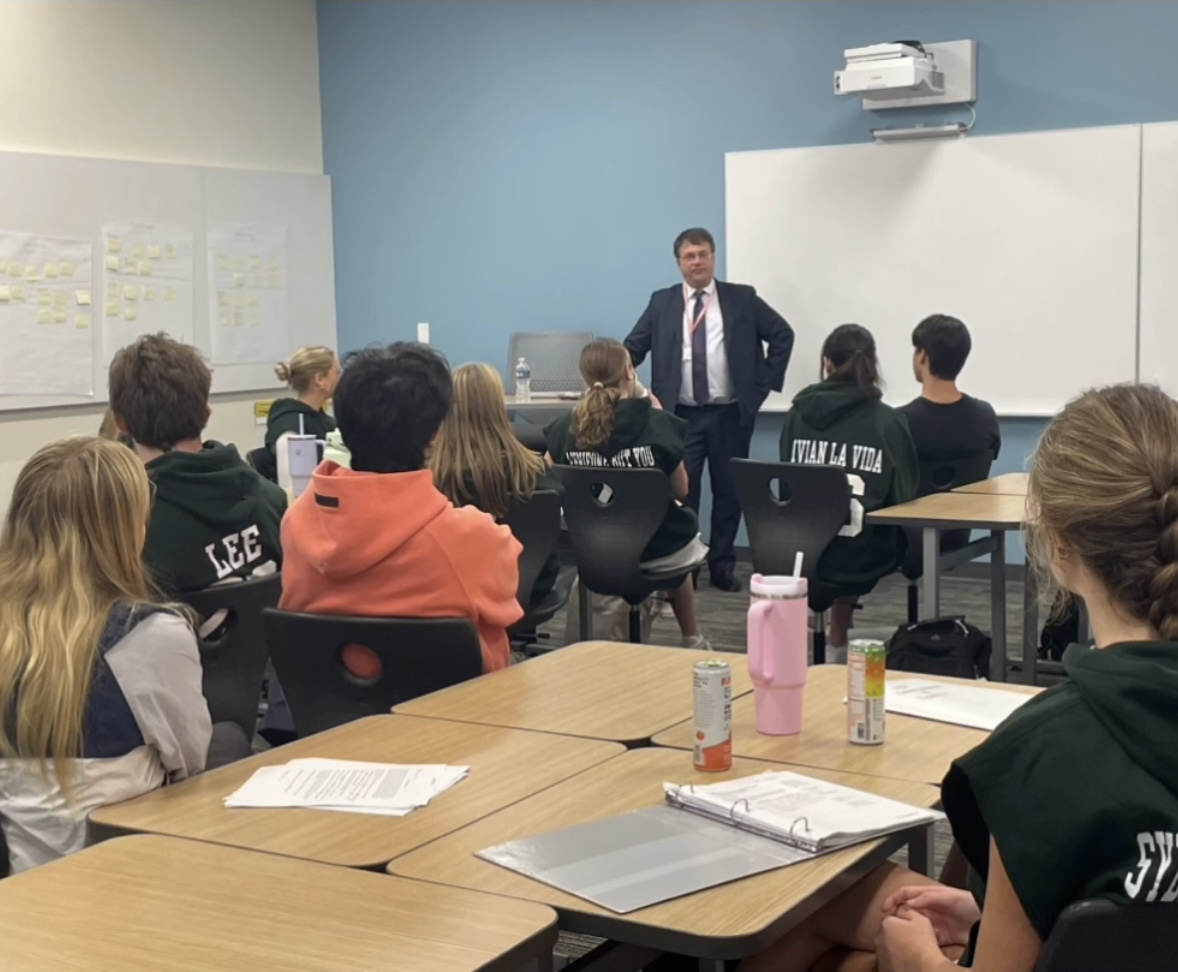Each year, as summer gets closer and seniors are just a few weeks from graduating high school, talk about the threat of pranks reverberates through the school. Some seniors decide to organize pranks that cause mild chaos for a variety of reasons. Some create pranks because they find them humorous. And others desire to leave behind a sort of legacy before graduation.
Dr. Timothy Dohrer, the Principal of New Trier’s Winnetka campus, sees pranks as an act of rebellion. “I think in the mind of a student it is a way to blow off steam or thumb their noses at authority,” he said.
Although many seniors contemplate pulling a prank or find humor in the pranks of their classmates, Dohrer stated that there are students who find pranks to be disruptive. “I know there are a lot of students who don’t like pranks and are scared of them because they can be disruptive or dangerous,” he explained. “At many schools, the last weeks can be very tense because of these pranks.”
Junior Jeremy Skiba believes that pranks are part of the senior experience. “I think it’s okay for seniors to play pranks. It’s a last goodbye,” he said. “I think the school should only prevent pranks if they are going to be harmful. Pranks are no longer funny when they involve hurting someone,” he added.
Liz Joyce, a junior, also sees pranks as relatively harmless as long as nobody is hurt and those who participate help clean up. “I think it’s okay for seniors to play pranks as long as they’re not dangerous and as long as they help clean it up after its done,” she said.
Although most students see some pranks as harmless and funny and others as dangerous, most faculty members disapprove of pranks. The damage left behind from a prank can come with a high price tag and hours of clean up. The school also has a duty to keep every student safe.
Dohrer explained why pranks are harmful to the school and why they should be avoided. “There is no such thing as a harmless prank,” he stated. “The act itself can be very disruptive and jarring, especially in a school where most people expect it to be calm.”
Social Studies teacher Aileen Geary finds that pranks have a negative impact on the faculty, student body, and the senior playing the prank. “I think that most pranks are either destructive or dangerous or both,” she said.
Dohrer went into further detail about the danger of pranks that seniors decide to organize and the damages that they can cause the school. “Throwing something slippery down a staircase has led to students slipping and getting injured. We have also had thousands of dollars of damage done to the building due to pranks that are really just acts of vandalism,” he said.
Dohrer sees the stress placed on the PPS staff as one of the worst consequences of pranks. “Most troubling of all the problems that pranks create are the men and women of our Physical Plant Services staff who must clean up after a prank,” he said. Dohrer also acknowledges a lack of awareness regarding the prank clean up among students. “No one is thinking about who is cleaning up after a prank.”
Faculty and students seem to agree that pranks can cause a lot of damage and harm to the school and the people in it. However, while most faculty discourage all kinds of pranks, some students believe that pranks can be acceptable to a certain degree.
“I think a prank goes from funny to dangerous or harmful if people are unaware of the prank. Like when bouncy balls were dropped down from the P stairwell, that could have been bad, but if people knew about it they could have found a way to avoid the P stairwell. I know that it would be annoying, but they are seniors and they survived New Trier. I think they deserve to kick back and have fun for a day,” said Joyce. “A prank is also not funny if there is lasting damage because that is just obnoxious and expensive,” she added.
Skiba observed the decrease in pranks and their quality. “There were pranks this year? Oh yeah, but they really weren’t as good,” he stated.
Dohrer acknowledges the decrease in the number of senior pranks. “We had only a few minor pranks this year, which is a reduction from the last few years. However, those pranks led to vandalism and damage,” he said.
Dohrer attributes the decrease in the number of pranks to measures of prevention from faculty. “We have taken a very strong stance against acts like these. For all students, this means disciplinary consequences like suspension from school. For seniors, it will mean suspension from school plus not walking in the graduation ceremony,” he explained.
Dohrer emphasized that student safety is the number one factor taken into consideration when it comes to preventing pranks. “Pranks can be dangerous. They can also make a student feel unsafe. Nothing positive comes out of these acts so it is quite easy for us to take serious measures against them,” he said.
“We try to teach students to think. Most students who do a prank have not thought through the consequences,” added Dohrer. “This is especially true for seniors who don’t realize how disappointed their mother, father, and family will be when they are not participating in our graduation ceremony. There’s no reason to jeopardize everything you have worked towards these past four years.”







































